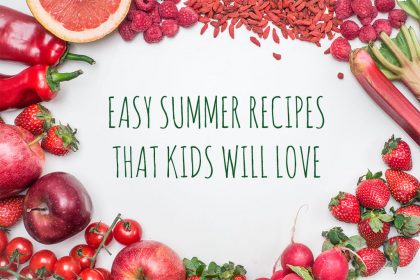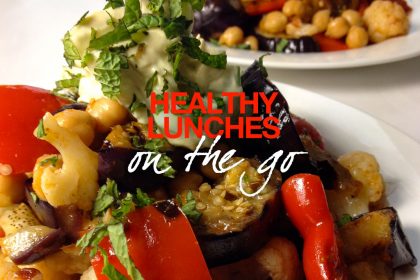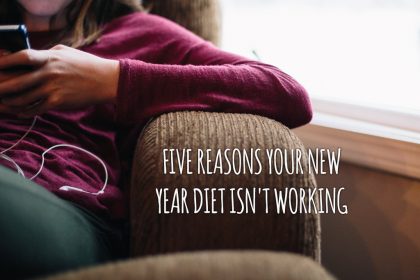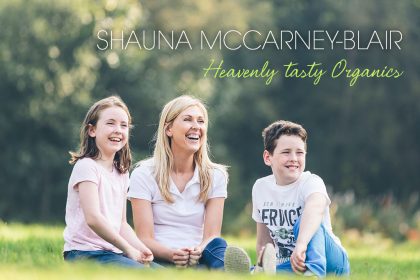Four reasons why you should buy organic food
How much of the food you and your family consume is organic? Discover four good reasons why it’s worth paying that little bit more for organic food.
We think a LOT about what we eat today, and it’s not uncommon to know someone who’s following a healthy diet regime: vegetarian, pescatarian, paleo, vegan, raw, 5:2, low-fat, or low-sugar.
Some people embark on programmes of #cleaneating or juice detoxes, and others boost their diet with supplements, such as organic osteoporosis supplements to help give them stronger bones.
And you don’t need to look far if you want to adopt a new food fad or jump on a bandwagon – the media is full of the latest miracle diet, and social media sharing sites like Instagram can quickly give birth to a hot new food trend.
But one food ‘fad’ that shows no sign of abating, is organic food. According to the Soil Association, organic sales accounted for 5%, 7% and 5.3% respectively of all milk, yoghurt and eggs, and more than 54% of all baby-food purchases in the UK in 2013 – and it’s growing year-on-year.
Four reasons why buying organic is good for you
And this can only be good news. Because, as writer Hubert Dwight explains, there are some very good reasons why organic food is good for us (and the planet). Here are four of them.
1) You avoid pesticides that have the potential to harm you
When you’re buying food that is mass-produced with the aid of pesticides, you’re also going to be consuming chemicals that are used to keep the food free of bugs. All food that has been grown with the aid of chemical treatments will have these elements grown into the plants and fruits that you are going to eat – with the potential of passing them on to you.
But the good news is that your body can apparently very quickly rid itself of pesticides once you stop consuming them: research in Sweden showed a huge drop in the presence of potentially harmful pesticides in your body after eating organic for just two weeks.
And there’s excellent reason to reduce the number of pesticides you consume: according to the National Academy of Sciences, 90% of the chemicals applied to foods have not been tested for long-term health effects before being deemed ‘safe’.
2) You potentially eat more fruit and vegetables
Thanks to an increasing interest in organic food, there are a growing number of organic meat and dairy producers reaching the mainstream market in places like health food stores Sunshine Coast. However, it can still be difficult to buy reasonably priced organic meat and eggs.
As a result, you may find that you’re going to be eating more vegetables and fruit, which is never a bad thing! And it’s not just the actual number of fruit and veg you consume. Thanks to their higher levels of antioxidants, even if you eat the same quantity of organic fruit and vegetables, it’s equivalent to ingesting two extra portions every day.
That’s not to say you have to avoid meat, or buy non-organic. But you may find that by committing to a more organic diet, you’ll choose to eat less meat and more fruit and veg instead.
3) You’ll make healthier diet choices
You’ll probably notice that all these consciously heathy choices have a positive knock-on effect on your diet in general.
Once you start making actively healthy decisions about the ingredients you use to prepare your family meals from, it’s natural that you’ll actually choose to cook healthier dishes. And by switching your brain into a healthier mindset, it’s easier to make healthier choices in the rest of your life too, and turning down that second slice of cake!
Many people who go organic also find they waste much less food, evening out the cost difference. After all, if you’re going to consider more carefully what you buy – and pay more for it – you make sure you’re really going to use it. It’s a mindset of buying less, but buying better.
4) Organic food is better for everyone
It’s not only your own health you can potentially positively impact by choosing organic food. You’re no longer supporting farming practices that pump the soil full of chemicals – which in turn run off into rivers.
Pesticides can have devastating health effects for the farmers themselves, their families and any animals living close to farms where they are used. Some of the health effects of pesticides include, “headaches, blurred vision, vomiting, abdominal pain, suppressed immune system, blood and liver diseases, depression, asthma, and nerve damage… The inactive ingredients such as chloroform can also cause serious risks to the liver and nervous system”.
Animals living around streams where pesticides accumulate can also experience these symptoms. And if they are later eaten by another animal, a pesticide apparently, “biomagnifies and obtains an even higher concentration as it moves further up the food chain”.
Pretty scary sounding stuff, and certainly enough to make you consider paying that bit extra for foods grown in a more ethical manner!
Every little organic food helps
Even if you can’t afford to fill your trolley with 100% organic food (or don’t have the time to scour every food label to check its background!), every little bit you can do helps both your family and the wider world.
By choosing healthier ingredients, grown in a more natural manner by local suppliers you are helping to support a more robust local economy, making less of a negative impact on your environment, promoting better farming practices (imagine if we all stopped buying mass-farmed, pesticide-pumped food!) and filling you and your family with food packed with nutrients, antioxidants and better taste.
So the next time you go food shopping, why not try swapping even just one or two items for an organic alternative? It could be better for everyone.










